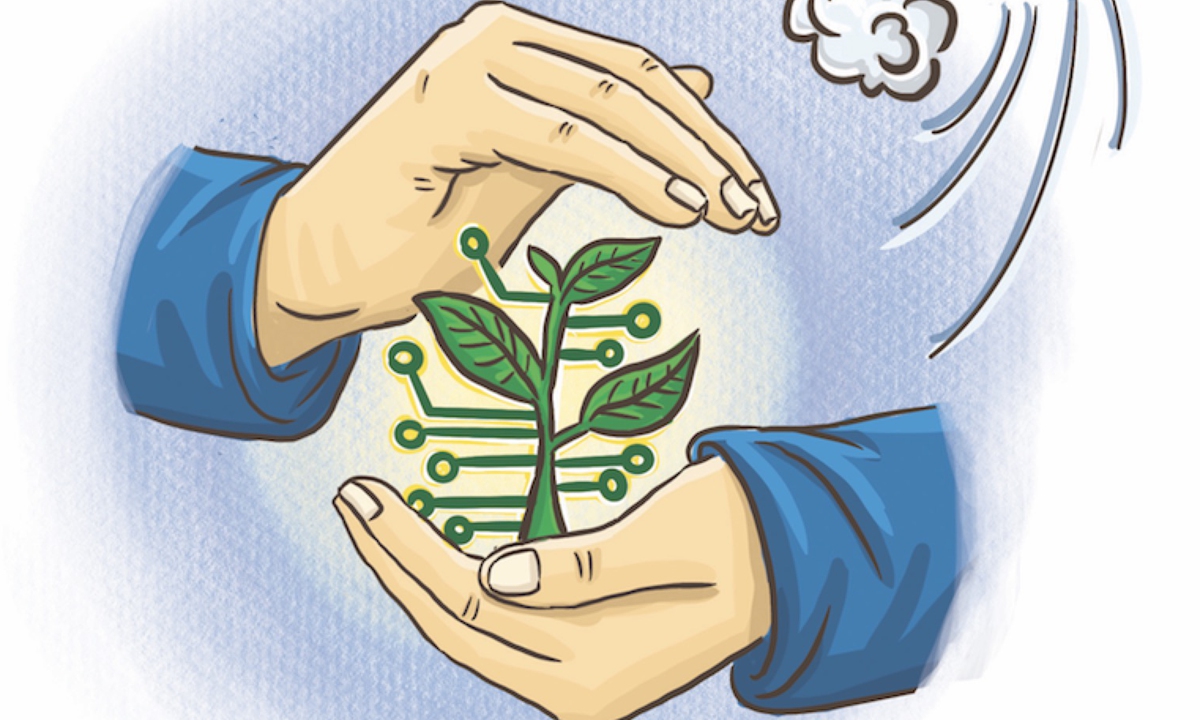China’s tech export controls in line with security requirements
Source: Global Times Published: 2020/8/31 21:57:14

Illustration: Xia Qing/GT
Editor's Note:China has released the latest adjustments to a catalogue of technologies that are subject to export controls. Among them, newly added items relating to artificial intelligence (AI) and computing technologies have drawn attention as a result of their implications for Chinese tech firm ByteDance, which is currently being coerced by the Trump Administration to sell its social media platform TikTok's US operations to American firms. In interviews with the Global Times, Chinese experts noted that the adjustment has long been expected, and is simply in line with China's agenda to protect intellectual property and enhance its national security.
Song Guoyou, deputy director of the Center for American Studies at Fudan University
The adjustment was an imperative move. New technologies have been emerging during the past 12 years, increasing the need for China to revamp the catalogue of technologies that are subject to export bans or restrictions.
It is in accordance with changes in global tech trade policies that have trended towards countries and regions tightening tech exports or heightening tech restrictions. For instance, the US included 14 new technologies in its export control list in 2018, including those related to AI, autonomous driving, 3D printing and quantum information. The country is reportedly considering further restrictions on exports of semiconductors. Under such circumstances, China has made revisions to its own catalogue in order to better protect the legitimate interests of its enterprises.
China has been stepping up efforts to shore up intellectual property protections that require bidirectional efforts - protection on import as well as on export technologies. If Chinese authorities do not regulate the export of certain domestic technologies with competitive advantages, some domestic companies or individuals may sell the technologies abroad at unreasonably cheap prices, causing damage to the intellectual property rights of Chinese technologies.
Moreover, the revisions are also in line with China's efforts to enhance its national security. Some restricted technologies could have military applications after certain improvement, not to mention that national security includes not just military security, but also economic, social, cultural and technological aspects. The potential outcomes of tech exports impacting national security should be seriously considered.
Gao Lingyun, a research fellow at the Institute of World Economics and Politics in the Chinese Academy of Social Sciences
The latest adjustment has been in process for a long time, so as to catch up with the requirements of new Chinese technologies. In the meantime, it has offered a regulatory framework for China to rely on when it encounters external shocks, such as when the Trump administration launches national efforts to crack down on Chinese technology firms.
The Trump-led US government has been relentlessly confronting China and bullying Chinese firms. In addition to its years of efforts to hamper the development of Chinese 5G frontrunner Huawei, it recently started to use administrative power to force Chinese tech firm ByteDance to strip and sell its US businesses and even in other overseas markets.
In dealing with such issues, the revisions in the catalogue of technologies that are subject to export controls could complement China's ability to protect its technologies from external, national-level attacks.
Against a backdrop of escalating external uncertainties, China has vowed to foster a new pattern of development. Under the new guidance, it is crucial for China to achieve breakthroughs in key and core technologies on the one hand, while, on the other, shoring up its capacity to counterbalance external attacks, such as with the timely adjustment of the catalogue of technologies subject to export bans or restrictions.
Posted in: EXPERT ASSESSMENT